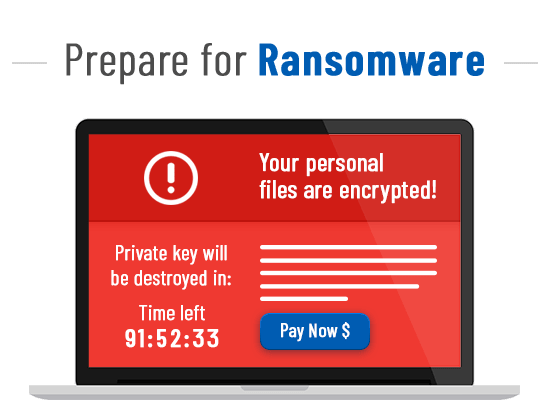Does Paying Ransomware Work?
Updated on October 21, 2022, by Xcitium
 Ransomware is a type of malware that encrypts a victim’s device and prevent access to it until a sum of money is paid. As cyber threats evolve, ransomware is fast becoming a major problem. The primary motive behind ransomware attacks is to extort money from the victims.
Ransomware is a type of malware that encrypts a victim’s device and prevent access to it until a sum of money is paid. As cyber threats evolve, ransomware is fast becoming a major problem. The primary motive behind ransomware attacks is to extort money from the victims.
Unlike other malware programs that allow hackers to steal valuable private user data and sell it to third parties in the dark web, ransomware directly targets the victims, holding their files hostage until a ransom is paid.
The alarming sophistication of ransomware attacks makes it difficult for cybersecurity experts to come up with a working solution. Nevertheless, even the most advanced ransomware has an inherent vulnerability — it must communicate with its creator to receive instructions and exfiltrate the targeted data. During that process, it leaves a signature mark that can be detected on the network.
Some recent ransomware variants complete their task in the background without making a single call to the Internet. Other ransomware variants attempt to destroy data recovery options by encrypting any connected network drives- deleting files and system restoration points or even remaining dormant until after a backup cycle.
Should You Pay Does Paying Ransomware Work?
If your computer gets infected with ransomware, the attacker may demand you to pay ransom in exchange for decrypting or regaining control of your computer and files. In recent times, ransom amounts have steadily gone up in the range of thousands of dollars. It’s worth noting that in the vast majority of ransomware attacks, the attacker does not have access to the victim’s information, instead only the ability to prevent the victim from gaining access to it.
If you choose to pay the ransom, you are paying someone who has few ethical or moral boundaries. Moreover, the attacker has the proven ability to lock you out of your computer.
So, should you pay the ransom? Well, first things first. You could avoid such Ransomware incidents with something as simple as having up-to-date software.
Modern day software is so complex that it inevitably has vulnerabilities that are only detected over time. Having an up-to-date operating system and software with all the latest security patches is the best way to avoid ransomware attacks.
Now, coming back to the question, should you pay the ransom?
Ransomware creators are criminals without any ethics. Hence, there is no guarantee that your computer or files will be decrypted even if you pay the ransom.
Moreover, paying ransom will only encourage the attackers to carry out these type of cyber attacks, and eventually makes it even more of a threat to everyone.
The bottom line is that you simply should do everything you’ll to avoid being infected with ransomware. You should have the fundamental practice of keeping your software programs up-to-date. Paying ransom won’t help you regain get to to your computer and files.
How To Prevent Does Paying Ransomware Work
Below are some tips to help you combat ransomware attacks,
For Individual Users:
- Avoid visiting suspicious websites
- Be cautious when opening e-mails or attachments from unknown sources.
- Always back up your files
- Enable popup blockers
- Keep your computer up-to-date
For Businesses (Organizations):
- Educate your employees
- Enforce strict controls on privileged accounts
- Have a proper data backup and recovery plan
- Make sure all the corporate-connected devices are up-to-date
When it comes to an organization’s security, antivirus products are not a viable option. The ideal way to disarm even the potent malware is to have an advanced endpoint protection system. Xcitium Advanced Endpoint protection (AEP) is such a solution which provides real-time protection for all of the corporate-connected endpoints.
Xcitium AEP isolates malware (including ransomware) from penetrating your company’s local area network at the device layer and executes them in an isolated or restricted system environment. It is the most intelligent endpoint protection solution that offers multiple layers of protection against both known and unknown threats.
For more details about Xcitium Advanced Endpoint Protection, contact us at +1 888-256-2608.
Related Resources
Xcitium Antivirus Resources

